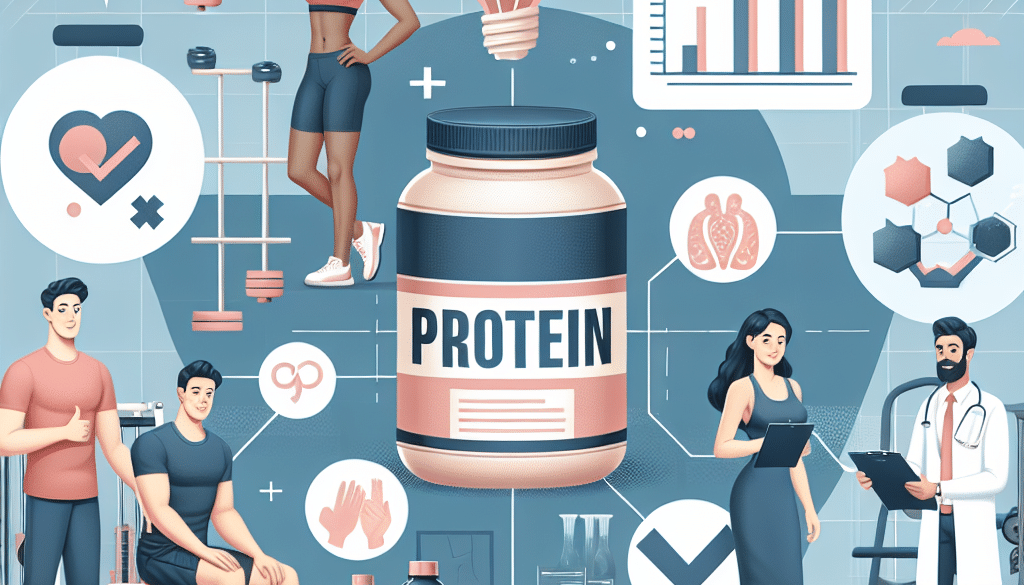What Are The Pros And Cons Of Protein Powder?
-
Table of Contents
Pros and Cons of Protein Powder: A Comprehensive Guide

Protein powder has become a staple in the diets of athletes, bodybuilders, and health-conscious individuals worldwide. Its popularity stems from its convenience and the growing awareness of the importance of protein in the diet. However, like any dietary supplement, protein powder has its advantages and disadvantages. In this article, we will explore the pros and cons of protein powder to help you make an informed decision about its use in your nutrition plan.
Pros of Protein Powder
Protein powder offers several benefits that make it an attractive supplement for many people. Here are some of the key advantages:
- Convenience: Protein powder provides a quick and easy way to increase your protein intake, especially when you’re on the go or have limited time to prepare meals.
- High-Quality Protein Source: Many protein powders are complete proteins, meaning they contain all nine essential amino acids necessary for muscle repair and growth.
- Supports Muscle Growth and Repair: Consuming protein powder, particularly after exercise, can aid in muscle recovery and promote muscle synthesis.
- Weight Management: Protein can increase satiety, helping you feel full longer and potentially reducing overall calorie intake, which can be beneficial for weight loss or maintenance.
- Dietary Inclusion: Protein powders can be a valuable supplement for those with dietary restrictions, such as vegetarians or vegans, who might find it challenging to meet their protein needs through food alone.
- Versatility: Protein powder can be incorporated into a variety of foods and beverages, from smoothies to baked goods, making it a versatile addition to your diet.
Cons of Protein Powder
Despite its benefits, protein powder also has potential drawbacks that should be considered:
- Quality Concerns: Not all protein powders are created equal. Some may contain harmful additives, artificial sweeteners, or contaminants.
- Digestive Issues: Some individuals may experience bloating, gas, or other digestive discomfort from certain types of protein powders, particularly those with lactose or artificial sweeteners.
- Over-reliance: Relying too heavily on protein powder at the expense of whole food sources can result in a lack of nutritional variety and other essential nutrients.
- Cost: High-quality protein powders can be expensive, and the cost can add up over time, especially for those who consume them regularly.
- Potential for Excessive Intake: It’s possible to consume too much protein, which can lead to unnecessary strain on the kidneys and other health issues.
- Environmental Impact: The production of some protein powders, particularly animal-based ones, can have a significant environmental footprint.
Understanding Protein Powder Types
There are various types of protein powders available on the market, each with its own set of characteristics:
- Whey Protein: Derived from milk, whey protein is quickly absorbed by the body, making it a popular choice for post-workout recovery.
- Casein Protein: Also from milk, casein is digested slowly, providing a steady release of amino acids over time.
- Soy Protein: A plant-based option that is a complete protein and can be a good choice for vegetarians and vegans.
- Pea Protein: Another plant-based protein that is hypoallergenic and easy to digest.
- Rice Protein: A vegan-friendly option that is also hypoallergenic and can be combined with other plant proteins to ensure a complete amino acid profile.
Choosing the Right Protein Powder
When selecting a protein powder, consider the following factors:
- Dietary Needs: Choose a protein powder that complements your dietary restrictions and preferences.
- Quality: Look for powders with minimal additives and artificial ingredients. Third-party testing and certification can also indicate a higher-quality product.
- Protein Content: Check the protein content per serving to ensure you’re getting a significant amount of protein for your needs.
- Taste and Mixability: A powder that tastes good and mixes well with liquids can make it more enjoyable to consume regularly.
- Cost: Consider your budget and how often you’ll be using the protein powder to determine a cost-effective option.
Conclusion: Balancing the Benefits and Drawbacks
In conclusion, protein powder can be a beneficial supplement for many individuals looking to increase their protein intake for various health and fitness goals. However, it’s essential to weigh the pros and cons, consider your specific needs, and choose a high-quality product. Remember that protein powder should complement a balanced diet rich in whole foods, not replace it.
Discover ETprotein’s Premium Protein Products
If you’re in the market for high-quality protein powders, consider ETprotein’s range of organic and vegan-friendly options. ETprotein specializes in producing and supplying top-tier protein products that cater to various dietary needs and preferences. Their offerings include organic rice protein, pea protein, and a variety of seed-based proteins, all characterized by a neutral taste and non-GMO, allergen-free attributes. With purity levels exceeding 98%, ETprotein’s products are suitable for a wide array of industries, from nutraceuticals to food and beverage.
ETprotein’s commitment to excellence is evident in their reputation as a trusted supplier for leading global brands. To explore their product range and find the perfect protein solution for your needs, contact ETprotein and email sales(at)ETprotein.com today.
About ETprotein:
ETprotein, a reputable protein and L-(+)-Ergothioneine (EGT) Chinese factory manufacturer and supplier, is renowned for producing, stocking, exporting, and delivering the highest quality organic bulk vegan proteins and L-(+)-Ergothioneine. They include Organic rice protein, clear rice protein, pea protein, clear pea protein, watermelon seed protein, pumpkin seed protein, sunflower seed protein, mung bean protein, peanut protein, and L-(+)-Ergothioneine EGT Pharmaceutical grade, L-(+)-Ergothioneine EGT food grade, L-(+)-Ergothioneine EGT cosmetic grade, L-(+)-Ergothioneine EGT reference grade and L-(+)-Ergothioneine EGT standard. Their offerings, characterized by a neutral taste, non-GMO, allergen-free attributes, with L-(+)-Ergothioneine purity over 98%, 99%, cater to a diverse range of industries. They serve nutraceutical, pharmaceutical, cosmeceutical, veterinary, as well as food and beverage finished product distributors, traders, and manufacturers across Europe, USA, Canada, Australia, Thailand, Japan, Korea, Brazil, and Chile, among others.
ETprotein specialization includes exporting and delivering tailor-made protein powder and finished nutritional supplements. Their extensive product range covers sectors like Food and Beverage, Sports Nutrition, Weight Management, Dietary Supplements, Health and Wellness Products, and Infant Formula, ensuring comprehensive solutions to meet all your protein needs.
As a trusted company by leading global food and beverage brands and Fortune 500 companies, ETprotein reinforces China’s reputation in the global arena. For more information or to sample their products, please contact them and email sales(at)ETprotein.com today.














